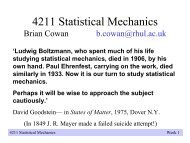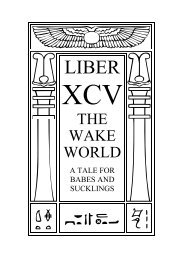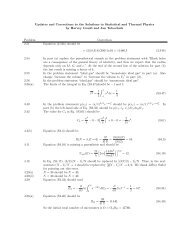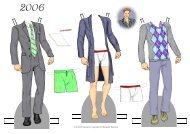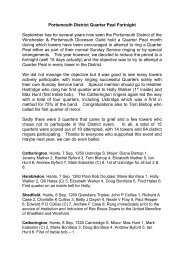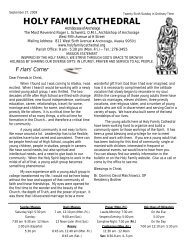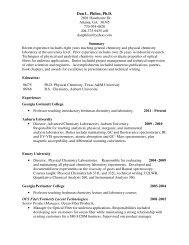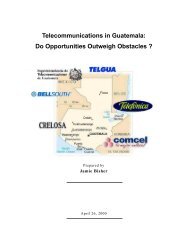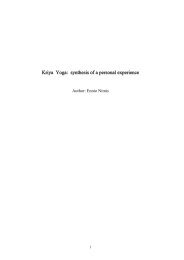A Critique of The German Ideology
A Critique of The German Ideology
A Critique of The German Ideology
You also want an ePaper? Increase the reach of your titles
YUMPU automatically turns print PDFs into web optimized ePapers that Google loves.
Nor will we explain to them that it is only possible to achieve real liberation in the real<br />
world and by employing real means, that slavery cannot be abolished without the<br />
steam-engine and the mule and spinning-jenny, serfdom cannot be abolished without<br />
improved agriculture, and that, in general, people cannot be liberated as long as they are<br />
unable to obtain food and drink, housing and clothing in adequate quality and quantity.<br />
"Liberation" is an historical and not a mental act, and it is brought about by historical<br />
conditions, the development <strong>of</strong> industry, commerce, agriculture, the conditions <strong>of</strong><br />
intercourse. . . . [1]<br />
In <strong>German</strong>y, a country where only a trivial historical development is taking place, these<br />
mental developments, these glorified and ineffective trivialities, naturally serve as a<br />
substitute for the lack <strong>of</strong> historical development, and they take root and have to be<br />
combated. But this fight is <strong>of</strong> local importance.<br />
In reality and for the practical materialist, i.e. the communist, it is a question <strong>of</strong><br />
revolutionising the existing world, <strong>of</strong> practically attacking and changing existing things.<br />
When occasionally we find such views with Feuerbach, they are never more than isolated<br />
surmises and have much too little influence on his general outlook to be considered here<br />
as anything else than embryos capable <strong>of</strong> development. Feuerbach's conception <strong>of</strong> the<br />
sensuous world is confined on the one hand to mere contemplation <strong>of</strong> it, and on the other<br />
to mere feeling; he says "Man" instead <strong>of</strong> "real historical man". "Man" is really "the<br />
<strong>German</strong>". In the first case, the contemplation <strong>of</strong> the sensuous world, he necessarily lights<br />
on things which contradict his consciousness and feeling, which disturb the harmony he<br />
presupposes, the harmony <strong>of</strong> all parts <strong>of</strong> the sensuous world and especially <strong>of</strong> man and<br />
nature. To remove this disturbance, he must take refuge in a double perception, a pr<strong>of</strong>ane<br />
one which only perceives the "flatly obvious" and a higher, philosophical, one which<br />
perceives the "true essence" <strong>of</strong> things. He does not see how the sensuous world around<br />
him is, not a thing given direct from all eternity, remaining ever the same, but the product<br />
<strong>of</strong> industry and <strong>of</strong> the state <strong>of</strong> society; and, indeed, in the sense that it is an historical<br />
product, the result <strong>of</strong> the activity <strong>of</strong> a whole succession <strong>of</strong> generations, each standing on<br />
the shoulders <strong>of</strong> the preceding one, developing its industry and its intercourse, modifying<br />
its social system according to the changed needs. Even the objects <strong>of</strong> the simplest<br />
"sensuous certainty" are only given him through social development, industry and<br />
commercial intercourse. <strong>The</strong> cherry-tree, like almost all fruit-trees, was, as is well known,<br />
only a few centuries ago transplanted by commerce into our zone, and therefore only by<br />
this action <strong>of</strong> a definite society in a definite age it has become "sensuous certainty" for<br />
Feuerbach.<br />
Incidentally, when we conceive things thus, as they really are and happened, every<br />
pr<strong>of</strong>ound philosophical problem is resolved, as will be seen even more clearly later, quite<br />
simply into an empirical fact. For instance, the important question <strong>of</strong> the relation <strong>of</strong> man<br />
to nature (Bruno [Bauer] goes so far as to speak <strong>of</strong> "the antitheses in nature and history"<br />
(p. 110), as though these were two separate "things" and man did not always have before



